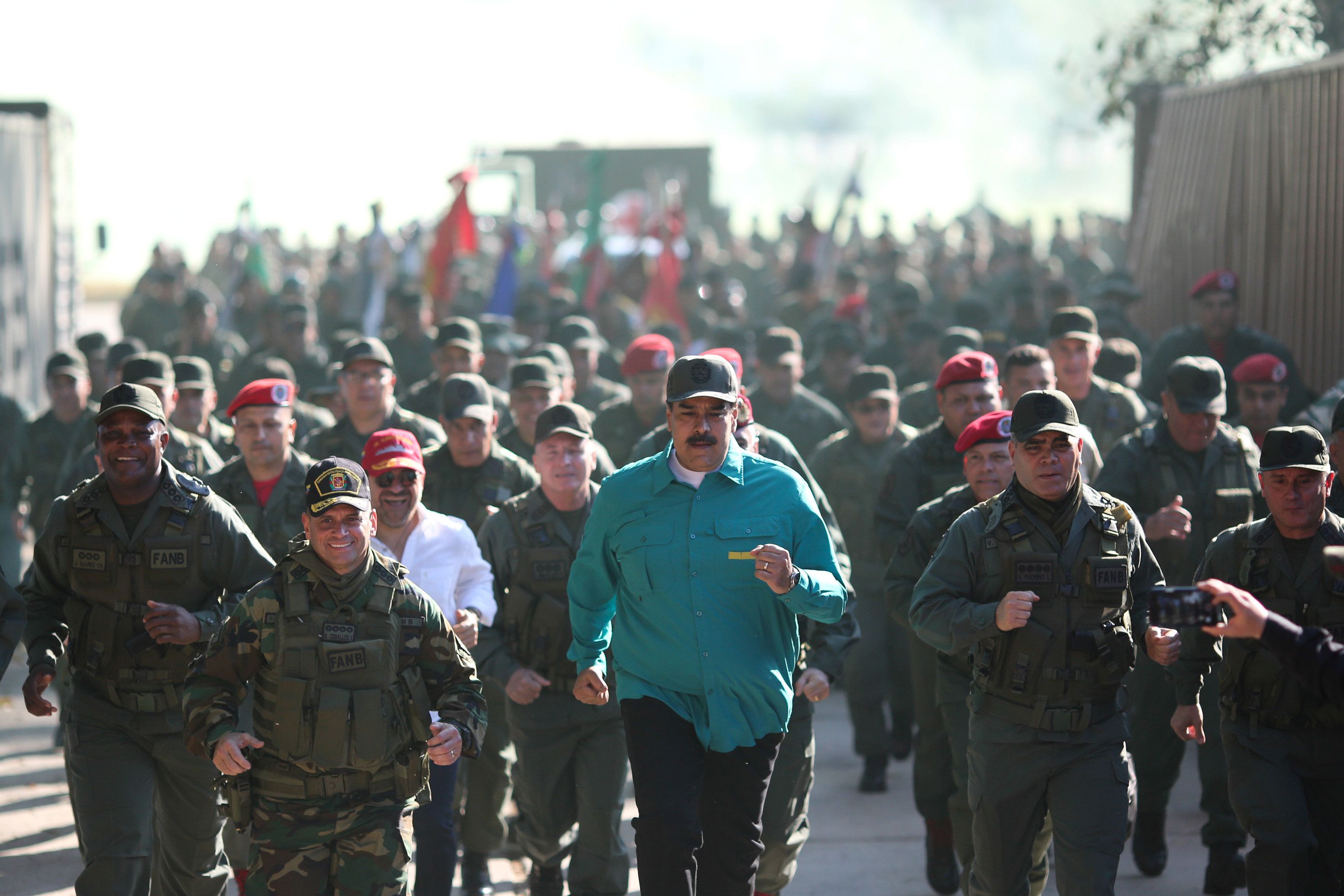Venezuelan President Nicolas Maduro faces his toughest test since coming to office in 2013, as a mounting wave of street protests fueled by a newly-energized opposition have plunged the country into political crisis. Maduro was able to weather similar challenges to his power in 2015 and 2017, but there's reason to think he might not be so lucky this time around.
First, a charismatic figure, Juan Guaido, has emerged as a singular voice to lead the previously fragmented domestic opposition to Maduro's regime.
Second, the opposition has vocal external support. The US, along with regional powers like Brazil and Colombia (Mexico is the notable exception), strongly backs Guaido, and most of Europe is now looking to follow the US lead. Yesterday, the US placed sanctions on Venezuelan state-owned oil giant PDVSA, further squeezing the regime's main economic lifeline.
Third, Venezuelans desperately want to end an economic and humanitarian catastrophe that has seen the economy shrink by half since 2015, driven 90 percent of the population into poverty, and is expected to cause another 2 million people to flee the country this year.
But unlocking change in Venezuela will take more than simply sustaining popular protest. The key for Maduro is whether the country's deeply entrenched military remains on his side. Here are three ways the endgame could play out:
The bait-and-switch: Maduro could step down, flee the country, and allow someone else from the military to take over. A senior diplomat tells us that Russia, which has reportedly sent military contractors to protect Maduro, would like to see him flee to Cuba, making way for a suitably anti-American figure to take his place.
A brokered solution: Guaido and the military could strike a deal to oust Maduro and share power, guaranteeing his inner circle protection from prosecution. Guiado has already offered amnesty to soldiers that decide to abandon Maduro.
An opposition-led government: The government could also hold genuine elections – and respect the results. While the US and Europe might prefer this outcome, it remains the least likely. Barring heavy US military support, any new government will require the support of members of the existing regime. That will preclude the opposition from wielding complete control.
The bottom line: The opposition will hold major rallies tomorrow and Saturday. More important than the support of outside actors, the real test for Maduro and Venezuela will be how the military decides to respond.
